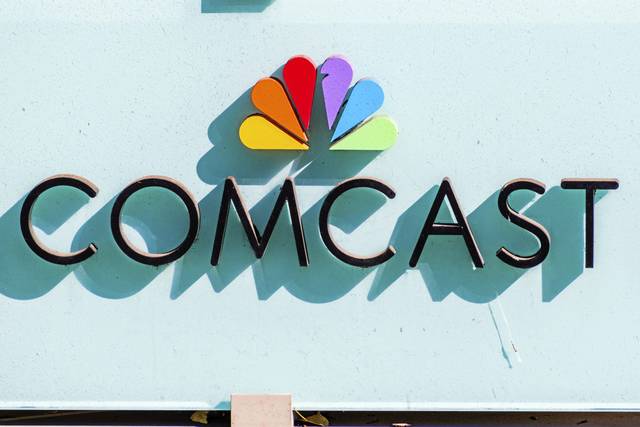https://naviga.triblive.com/opinion/paul-finkelman-intellectual-property-and-protecting-pa-jobs/
Paul Finkelman: Intellectual property and protecting Pa. jobs

Paul Finkelman, Ph.D., is president of Gratz College and a former law professor at the University of Pittsburgh School of Law.
The novel coronavirus has ravaged Pennsylvania, forcing more than 1.5 million of our neighbors to the unemployment line. This represents 23% of the Keystone State’s workforce. The devastation far outpaces the beginning of the Great Recession in 2012, when “only” 190,000 Pennsylvania jobs disappeared. As Congress and state leaders continue to explore stimulus plans, Pennsylvania employers need to develop flexible strategies to keep people employed. This may require rethinking current business plans.
Comcast, the commonwealth’s second-largest employer, seems to be facing a dilemma that pits a long-term business and legal strategy against the company’s responsibility to the state, consumers and its own employees. On April 23 — ironically, just days before the observance of World Intellectual Property Day — the corporation lost an IP fight before the International Trade Commission over the use of patented cable box technology. TiVo, a competitor of Comcast, successfully argued that Comcast was using TiVo’s cable box features without a license. The decision is the second such defeat for Comcast in the last two months. In March, the U.S. Court of Appeals for the Federal Circuit ruled against Comcast in another case involving other TiVo cable box patents. Comcast may appeal this result to the U.S. Supreme Court, but it is highly unlikely the Court would even take the case.
These two losses bolster other patent suits TiVo currently has pending against Comcast. If Comcast loses these cases, it could trigger layoffs and other consequences for the company’s 159,000 Pennsylvania employees. As a highly sophisticated technology and entertainment company, Comcast is well positioned to ride out the coronavirus crisis with few layoffs or furloughs. However, all of this litigation could undermine its strong position.
These complicated legal wranglings over intellectual property law and patents focus on the company’s use of recording systems, search functions and other features beloved by Comcast customers. One analyst, quoted in Bloomberg, predicts that these litigation defeats could “diminish the value of the Comcast X1 platform in the eyes of pay-TV subscribers” because Comcast may have to eliminate features that consumers love, leading to business decline and, inevitably, job loss. The adverse publicity coming from a string of unsuccessful court cases can also have a negative cumulative effect.
This threat is bolstered by the ongoing loss of subscribers for most cable companies. In 2019, Comcast lost over 3% of its subscribers as “cord-cutters” switched to online platforms. The covid-19 pandemic may accelerate this trend as unemployed viewers seek less expensive alternatives to home entertainment. One market monitor predicts that in 2020 about 5.8 million subscribers will leave Comcast and its leading competitors.
Many experts believe the virus-induced shutdown will push the economy into a deeper decline. Prolonged double-digit unemployment rates will make bundled packages offering thousands of channels an expendable luxury for many consumers. Such a decline could result in layoffs and job uncertainty for Comcast employees, and that will further harm Pennsylvania’s economy.
After losing two cases in a row, perhaps it is time for Pennsylvania’s number two employer to listen to the advice of the late, great singer Kenny Rogers: “know when to hold ‘em, know when to fold ‘em, know when to walk away.”
Pennsylvanians, stuck at home and forced to “commute” to work online, need Comcast’s reliable internet and cable service. If it cuts its losses, throws in its cards and moves to the negotiating table, the company can still easily secure continued access to the features its customers want through a licensing agreement. This would avoid unwelcome publicity from failed litigation, eliminate expensive legal fees, and dodge a possible court order forcing the company to replace existing cable boxes with ones that do not infringe on TiVo’s patents.
With the pandemic raging, it is hard to imagine how Comcast technicians could even enter homes to replace boxes. By settling these cases, Comcast can shore up its customer base, continue to provide its excellent service in a time of crisis and provide more job security for its 159,000 employees.
It is no loss of face to walk away from failed litigation. It can make great business sense, and it will help Comcast’s Pennsylvania employees and the millions of other Americans who rely on its internet and cable services during these uncertain times.
Copyright ©2026— Trib Total Media, LLC (TribLIVE.com)
